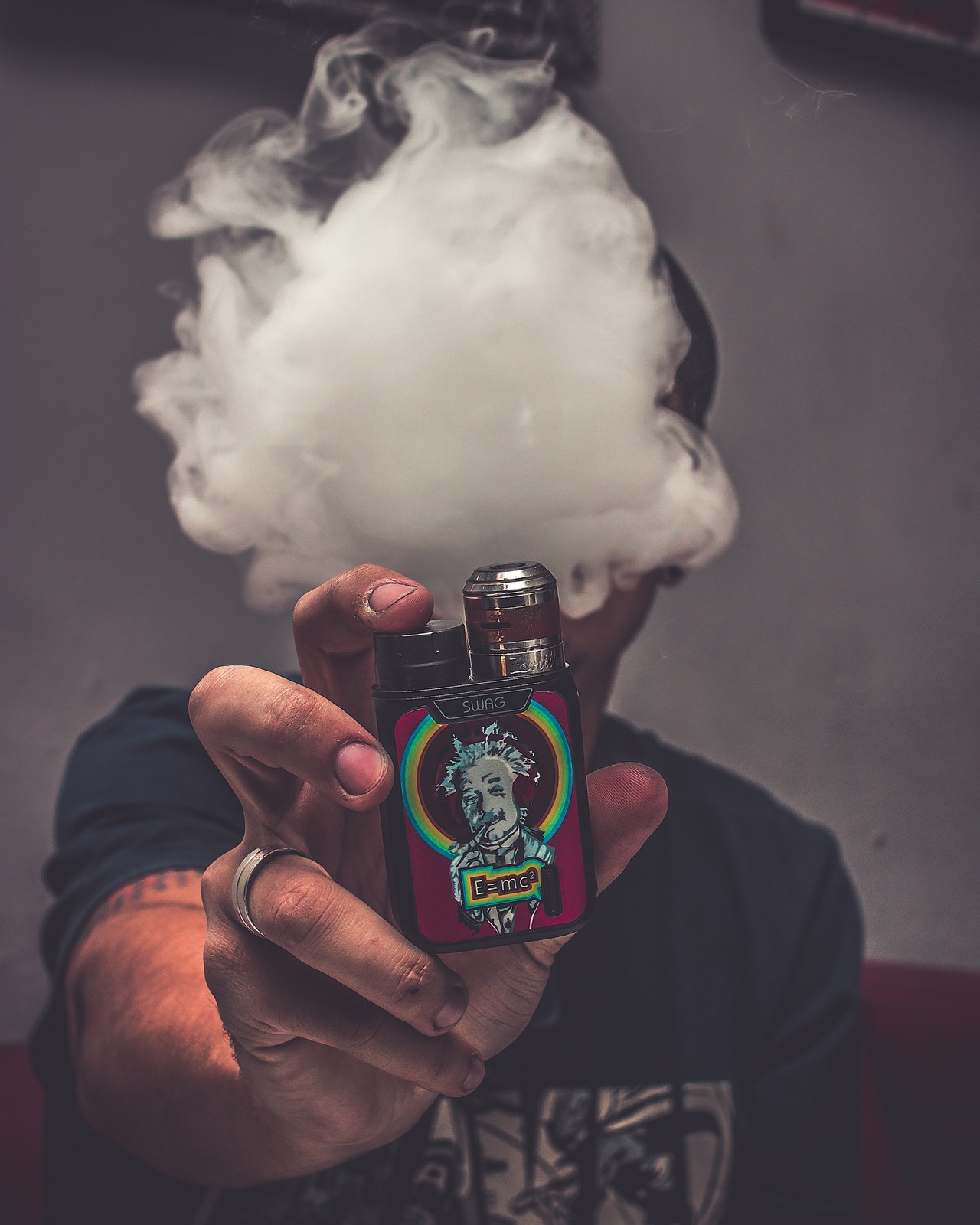The White House says that we should soon expect an announcement of a ban on vaping and e-cigarette products.
But even as we are anticipating an upcoming federal ban on e-cigarettes and flavored cartridges, a number of states have already issued sweeping bans on the sale of vapes and other vaping products and accessories, implemented in response to an “alarming” number of deaths and illnesses related to their use.
New studies reveal that there has been a large spike in usage, particularly among minors. Hospitals and doctors are alarmed by an outbreak of mysterious lung injuries connected to vaping and vaping products.
E-cigarettes— as well as vapes and pens— are, in essence, nicotine delivery systems, designed to be replacements for regular tobacco cigarettes. ABC News has recently reported that 27% of high-schoolers have jumped aboard the vaping bandwagon.
What’s Wrong with Vaping?
“Obviously inhaling stuff is going to have some impact on the lungs,” says Dr. Peter Shields, a medical oncologist with a focus on lung cancer at the Ohio State University Comprehensive Cancer Center in Columbus. Shields is the lead author of the new study on vaping, which has been published in the Cancer Prevention Research medical journal.
The study suggests that vaping e-liquids, specifically propylene glycol and glycerin, may lead to some inflammation in the lungs — but more research is needed to determine just how much inflammation may occur over a prolonged period of time.
The study has also found that in people who have never smoked, after using e-cigarettes just twice daily for a month, levels of propylene glycol in their system were linked with changes in inflammatory cell counts in their lungs, although the magnitude of changes were small.
“This is another piece of information,” says Dr. Shields about the study. “I would not make the conclusion that this shows that e-cigs are harmful to your health, but one piece of evidence for that. I would say that we have choices in the world and it makes sense that if you’re not a smoker, you shouldn’t start using e-cigs.”
Which States and Cities Have Banned Vaping?
Michigan became the first state to limit the sale of vaping products, issuing an emergency ban on the sale of nicotine-based vaping products in any flavor except tobacco. Under Governor Gretchen Whitmer, marketing restrictions also came into play, forbidding the use of terms like “clean”, “safe”, and “healthy”.
While the ban was made official on Sept. 18 and set for 180 days, a lawsuit brought up by retailers claims that the Governor has overstepped her authority by enacting the ban. An injunction of six months means that shops can once again sell flavored vaping products, reported the Detroit Metro Times.
New York is also facing an uphill battle as an appellate court placed a hold on a statewide ban on flavored nicotine vaping products by Gov. Andrew Cuomo.
Even while government agencies are trying to figure out exactly what’s causing these vaping-related illnesses, states like Massachusetts, Rhode Island, Montana, Washington, and Oregon all have enacted emergency rulings or other similar executive orders to either prevent or limit the sale of certain vaping products.
In addition, states like California are working with various state agencies to develop new recommendations in response to the dangers of vaping, especially among the youth.
Just over the summer, San Francisco– where Juul is based– became the first major U.S. city to ban the sale of all nicotine e-cigarette products. The Los Angeles County Board of Supervisors is considering a similar ban on flavored cartridges and other related products.
How Does The Ban Affect Vaping Companies?
Just recently, Juul has announced that it will halt the sales of its popular mint pods.
Juul, the largest seller of e-cigarettes, might just be getting ahead of a federal ban on flavored cartridges. Mint, as it turns out, is its most popular flavor among teenagers and high school students.
As of this time, Juul will still continue to sell menthol pods, as well as its two tobacco products. Mint pods, which currently comprise about 70% of the vaping giant’s total business, will no longer be sold.
Juul has already pulled out several other flavored pod products: mango, creme brulee, and unicorn milk, which have also been popular among its client base.
E-cigarettes, including the ones made by Juul, are not currently FDA-approved. Juul has until spring 2020 to apply for approval as a new tobacco product.
A Final Word About Vaping
While many proponents have argued that vaping is a healthier alternative to regular cigarettes, some 1,299 lung injuries and 28 deaths have already been attributed, at least in part, to vaping or e-cigarette usage as of last month.
So, just how dangerous are e-cigarettes? CNN’s Dr. Sanjay Gupta says it’s difficult to say, mostly because it’s just too early to tell, and we’ve only started to gather data on the subject.
“Scientists are now studying the potential link between vaping and lung diseases, vaping and seizures, and vaping’s impact on addiction,” says Dr. Gupta.
“Remember, it took decades of data on smoking before we knew the dangers of cigarettes, and so it could be decades more to know what e-cigarettes do to the body.”
Dr. Gupta does point out that some of the additives and flavoring used in vapes are considered to be “generally safe to eat by the FDA.”. Inhaling them, however, is a different matter altogether.
“And that’s the critical point,” stressed Dr. Gupta. “Breathing in these chemicals instead of eating them could have different effects on the body which we don’t fully understand.




